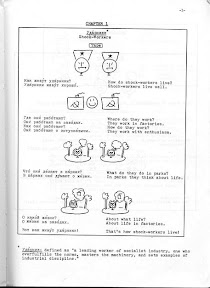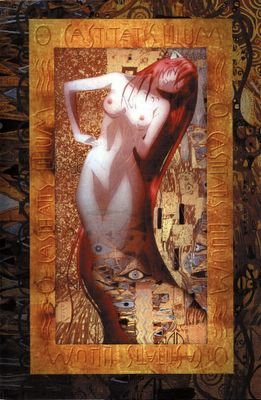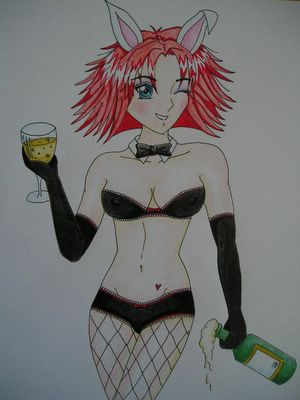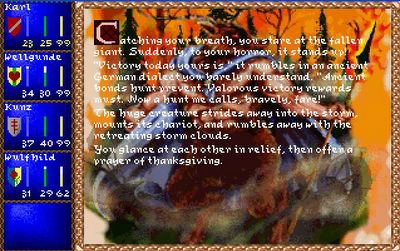Will be traveling until January 12th. Guangzhou, Ningbo, Shanghai, Hangzhou, Gaozhou
In the meanwhile, the reader can engage in a voyage of the imagination, imaging the protagonist of this blog encountering exotic roadsigns and confronting the memories of his past.
Happy holidays! I will bring back lots of pictures. I would bring back love too, but we all know that my heart is an engine forged from the remnants of a supernova.
Kindest regards,
Friday, December 22, 2006
Thursday, December 21, 2006
Tuesday, December 19, 2006
China Tightens Adoption Rules for Foreigners
Professor Murray is single and she adopted Bin from China. In our business law class we would hear hilarious stories from her, such as how Bin developed a Shreveport accent (Professor Murray is from Louisiana). I am glad the professor adopted Bin before these rules are coming into being.
Professor Murray is single and she adopted Bin from China. In our business law class we would hear hilarious stories from her, such as how Bin developed a Shreveport accent (Professor Murray is from Louisiana). I am glad the professor adopted Bin before these rules are coming into being.
Wednesday, December 13, 2006
Just finished watching Days of Being Wild. Leslie Cheung is simply incredible with his acting. Another one of his movie that I also liked is Farewell My Concubine. His death is truly a great lost to cinema.
Tuesday, December 12, 2006
Monday, December 11, 2006
birthday
Have you ever experienced waking up, but it is too late for breakfast? How about after eating lunch, you watch an old HK film and then when you set foot out of your apartment, the sky is already dark. Oh how time passes us by...
Perhaps I should move to Antarctica. I hear it has light 24 hours a day, it never rains, and there is never darkness.
Have you ever experienced waking up, but it is too late for breakfast? How about after eating lunch, you watch an old HK film and then when you set foot out of your apartment, the sky is already dark. Oh how time passes us by...
Perhaps I should move to Antarctica. I hear it has light 24 hours a day, it never rains, and there is never darkness.
Sunday, December 10, 2006
Cooked for myself, the beef actually turned out pretty well, and watched a HK film (Chungking Express), feel like I am being spoiled.
Thursday, December 07, 2006
Wednesday, December 06, 2006
I wrote the story of O
Read this article while I was in France.
It piqued my interest, so I went to Shakespeare's and ask them where I can find The History of "O"?
The ever helpful response I got was, "Look in the history section."
Read this article while I was in France.
It piqued my interest, so I went to Shakespeare's and ask them where I can find The History of "O"?
The ever helpful response I got was, "Look in the history section."
Monday, December 04, 2006
Saturday, December 02, 2006
Sunday, November 26, 2006
Friday, November 24, 2006
Getting Rich - Pankaj Mishra reports from Shanghai
‘Alternative modernity’ and ‘institutional innovation’ may also sound like mere slogans. The New Left belongs, after all, to a very small and powerless minority of intellectuals. But its growing appeal suggests that the post-Mao reversals of ideology and politics – based on a simple moral opposition between socialism and capitalism, the free market and the state, private and public property – are beginning to lose their force as the storm of progress blowing through China continues to scatter debris everywhere.
Is this what the final frontier has become? A golf course?
It is a troubling symbol of humanity's aspiration: the latest installment in our great space quest saw an astronaut tee off
It is a troubling symbol of humanity's aspiration: the latest installment in our great space quest saw an astronaut tee off
Thursday, November 23, 2006
Dégringolade
Union Sucrée
The first article I read about the decline of France. The scholarship of which, and many more self critiques made me believe that there is still hope for France in the future. If it wasn't for the alacrity with which these authors continue to seize the problems at hand, I would have given up on French long ago.
Union Sucrée
The first article I read about the decline of France. The scholarship of which, and many more self critiques made me believe that there is still hope for France in the future. If it wasn't for the alacrity with which these authors continue to seize the problems at hand, I would have given up on French long ago.
Sunday, November 19, 2006
I offer something more with these thoughts, which only you will notice. Do you remember that moment by the banks of the Ganga? That silent dark? Those wanderings in imagined worlds? Those deep discussions in low, serious voices? The two of us sitting silently, saying nothing? That breeze at sunrise, that evening shadow! And, once, those rain-bearing clouds, Sravan’s downpour, the songs of Vidyapati? . . . I have concealed a handful of contentment and grief in these thoughts; open these pages once in a while and look upon them with affection, no one but you will be able to see what’s in them! The message inscribed into these words is – there’s one writing that you and I shall read. And there’s another writing for everyone else.
Selected Poems by Rabindranath Tagore
Saturday, November 11, 2006
The prophecy of Saro-Wiwa
11 years after the Ogoni leader's brutal hanging, violence is erupting in the Niger delta region
11 years after the Ogoni leader's brutal hanging, violence is erupting in the Niger delta region
Friday, October 20, 2006

SHOCK-WORKERS AND LOAFERS.
"Как живут ударники?
Ударники живут хорошо.
How do shock-workers live?
Shock-workers live well."
Alexander Lipson. A Russian Course
Tuesday, October 17, 2006
A Tell-All’s Tale: French Politicians Stray Early and Often
“When I was president of the republic, I was in love with 17 million French women,” Mr. Giscard d’Estaing said in an interview taped for the television show “Private Life, Public Life” to be broadcast Wednesday. He added, “When I saw them in the crowd, they felt it and then they voted for me.”
“When I was president of the republic, I was in love with 17 million French women,” Mr. Giscard d’Estaing said in an interview taped for the television show “Private Life, Public Life” to be broadcast Wednesday. He added, “When I saw them in the crowd, they felt it and then they voted for me.”
Monday, October 16, 2006

Defcon: Everybody Dies has one of the best ambient atmospheres for a game.
You must listen to the soundtrack. It is a background of recycled air, radio chatter, static, and a soprano singing... perhaps of your loneliness. You can't help but feel like you are in a remote bunker pushing the button to end millions of lives. Then suddenly, you hear the faith sounds of a women crying... is she crying about someone who just died?
Disturbing.
Sunday, October 15, 2006
Saturday, October 14, 2006
Saturday, September 30, 2006
On Gentlemen Giving
iPods as Gifts
I am speechless, how could I have been so foolish all along! Miss Keira you are mein guardian angel!~
iPods as Gifts
I am speechless, how could I have been so foolish all along! Miss Keira you are mein guardian angel!~
Portal
You maybe required to perform simple tasks... these tasks will be supplemented with insurmontable obstacles...
French try woman as president - but first on a sitcom
The president of France has problems: plummeting approval ratings, few political allies, an outbreak of pimples before an important speech, and now this. She's barely past her first 100 days in office and she's pregnant.
Catastrophe!
Sunday, September 24, 2006
Internet's future in 2020 debated
"The less one is powerful, the more transparent his or her life. The powerful will remain much less transparent."
"The less one is powerful, the more transparent his or her life. The powerful will remain much less transparent."
Saturday, September 23, 2006
Biofuels: Green energy or grim reaper?
Competition in the food market by biofuels is an interesting point that I hadn't thought about.
"Governments also need to provide leadership in the form of economic incentives to minimise competition between food and fuel crops, and ensure that water, high-quality agricultural land, and biodiversity are not sacrificed on the altar of our convenience."
Competition in the food market by biofuels is an interesting point that I hadn't thought about.
"Governments also need to provide leadership in the form of economic incentives to minimise competition between food and fuel crops, and ensure that water, high-quality agricultural land, and biodiversity are not sacrificed on the altar of our convenience."
Friday, September 22, 2006
In China, Children of the Rich Learn Class, Minus the Struggle
“At the top of the pyramid will be exceptionally strong graduates from top American or European universities who become a sort of ‘international freemen,’ ” said Qiu Huadong, an author and editor who has written about the new elite. “They work several years in China, and then they go abroad for a while, shifting locations every few years. At the bottom of the pyramid will be those who didn’t get such an outstanding education, and they’ll be sweating and bleeding for China and globalization.”
“At the top of the pyramid will be exceptionally strong graduates from top American or European universities who become a sort of ‘international freemen,’ ” said Qiu Huadong, an author and editor who has written about the new elite. “They work several years in China, and then they go abroad for a while, shifting locations every few years. At the bottom of the pyramid will be those who didn’t get such an outstanding education, and they’ll be sweating and bleeding for China and globalization.”
Sunday, September 17, 2006
China and U.S. involvement in Sudan
Unable to explain its awkward, unrealistic, and now disintegrating flirtation with this terrorist state, the White House understandably looks for a scapegoat:
China.
The title of the Washington Post’s September 6 editorial Responsible China? Darfur exposes Chinese hypocrisy pretty much conveys the political line of frustrated administration policymakers.
The United States and its European partners have called upon Sudan to let the U.N. force in. But China, which has enormous leverage over Sudan because of its investment in Sudanese oil fields, has failed to push the Sudanese into accepting the "realistic option" of a U.N. deployment.
Rather ironic that Sudan, which was supposed to serve as the keystone of Bush administration engagement with Africa, has turned into an exclusive sandbox for the Yellow Peril.
Tuesday, September 12, 2006
Sunday, September 10, 2006
Tuesday, August 22, 2006
Wednesday, August 16, 2006
A symphony of civilizations
"It is the studio of an artist in the 17th-century Netherlands. In the foreground there are a tapestry, an empty chair and a table. A seated painter is trying to catch the essence of his model, a demure young woman, Clio, the Greek muse of history. On the wall, as a backdrop, is a large map of the Seventeen Provinces printed in Amsterdam. The scene is quiet but inspiring."
"It is the studio of an artist in the 17th-century Netherlands. In the foreground there are a tapestry, an empty chair and a table. A seated painter is trying to catch the essence of his model, a demure young woman, Clio, the Greek muse of history. On the wall, as a backdrop, is a large map of the Seventeen Provinces printed in Amsterdam. The scene is quiet but inspiring."
Monday, August 14, 2006
Friday, July 28, 2006
Thursday, July 20, 2006
Wednesday, July 19, 2006
Tuesday, July 18, 2006
Sunday, July 16, 2006
Friday, July 14, 2006
Monday, July 10, 2006
As a most irksome matter, I fired my memory module with manual memory timing. Now I must RMA both the motherboard and the memory. Curses! Why must my attempts to build a new computer be foiled at every turn?!
Currently contemplating getting a black 13.3" Mac Book sometime in August when Merom comes out.
Currently contemplating getting a black 13.3" Mac Book sometime in August when Merom comes out.
Went to Chicago this last weekend. Tried Taste of Chicago, which is good but expensive. Got soaked in the two public fountain columns. The faces on them reminded me of Bladerunner. The city is lovely. I wouldn't mind living here if I am working for the right company. Unlike other city archtectures of empty downtowns, Chicago has residential complexes throughout the entire city. Which translates into more public events, more social gatherings, and more culture. At night, watched the Orchestra play "Battleship Potemkin" in the open air concert stage. Later watched fireworks at Navy Pier.
Repaired to a suburb of Chicago at dawn and slept wondering when was the last time I went to bed with the windows open.
Went to Chinatown the next morning and ate at Joy Yee's, which tastes even better than the food in Houston. The picturesque buildings of the Chinatown unsettled me somehow. Especially this one building facing the new plaza... There is something about it that gives me pause. Old Chinatown reminded me of the non-existent spaces between the buildings.
Repaired to a suburb of Chicago at dawn and slept wondering when was the last time I went to bed with the windows open.
Went to Chinatown the next morning and ate at Joy Yee's, which tastes even better than the food in Houston. The picturesque buildings of the Chinatown unsettled me somehow. Especially this one building facing the new plaza... There is something about it that gives me pause. Old Chinatown reminded me of the non-existent spaces between the buildings.
Sunday, June 25, 2006
Saturday, June 17, 2006
Thursday, June 15, 2006
LRB | Alain Supiot : The Condition of France
"Having made the fight against delinquency the main plank of his electoral programme, he (Nicolas Sarkozy) had referred to young people in the banlieues as ‘riff-raff’ whom he intended to ‘power-hose’ off the streets. The fact that a minister could talk like a gangster and so put a match to the powder that had long been collecting in the most deprived neighbourhoods of the Republic, is not simply a sign of incompetence. It is first and foremost a sign that an age-old achievement of our Western juridical systems – the distinction between a public office and the person who occupies it – is being called into question."
"Having made the fight against delinquency the main plank of his electoral programme, he (Nicolas Sarkozy) had referred to young people in the banlieues as ‘riff-raff’ whom he intended to ‘power-hose’ off the streets. The fact that a minister could talk like a gangster and so put a match to the powder that had long been collecting in the most deprived neighbourhoods of the Republic, is not simply a sign of incompetence. It is first and foremost a sign that an age-old achievement of our Western juridical systems – the distinction between a public office and the person who occupies it – is being called into question."
Learning Arabic in France
But the ‘first true Orientalist’ according to Irwin was Guillaume Postel, who travelled to Constantinople in 1535 on a French royal commission to collect Eastern manuscripts, and promptly learned Arabic, Turkish and Coptic (among other languages) to add to the Hebrew he had mastered as a schoolboy. Postel wasn’t a Christian evangelist: his beliefs were weirder. They included the opinion that world peace could be achieved if everybody spoke Hebrew; and a conviction that he had met the Shekinah (a manifestation of divinity) in the form of a Venetian woman whose X-ray vision allowed her to look into the Earth’s core and see Satan. For this he was officially declared insane (but not a heretic) by the Inquisition in Venice. He spent much of his tenure as the Collège de France’s first professor of Arabic comfortably incarcerated in a Paris asylum.
Two hundred years later, it was not much easier to learn Arabic in France.
Two hundred years later, it was not much easier to learn Arabic in France.
Sunday, June 11, 2006
Wednesday, June 07, 2006
Tuesday, May 30, 2006
Lost in translation
"An English couple have a child. After the birth, medical tests reveal that the child is normal, apart from the fact that it is German. This, however, should not be a problem. There is nothing to worry about. As the child grows older, it dresses in lederhosen and has a pudding bowl haircut, but all its basic functions develop normally. It can walk, eat, sleep, read and so on, but for some reason the German child never speaks. The concerned parents take it to the doctor, who reassures them that as the German child is perfectly developed in all other areas, there is nothing to worry about and that he is sure the speech faculty will eventually blossom. Years pass. The German child enters its teens, and still it is not speaking, though in all other respects it is fully functional. The German child's mother is especially distressed by this, but attempts to conceal her sadness. One day she makes the German child, who is now 17 years old and still silent, a bowl of tomato soup, and takes it through to him in the parlour where he is listening to a wind-up gramophone record player. Soon, the German child appears in the kitchen and suddenly declares, "Mother. This soup is a little tepid." The German child's mother is astonished. "All these years," she exclaims, "we assumed you could not speak. And yet all along it appears you could. Why? Why did you never say anything before?" "Because, mother," answers the German child, "up until now, everything has been satisfactory."
"An English couple have a child. After the birth, medical tests reveal that the child is normal, apart from the fact that it is German. This, however, should not be a problem. There is nothing to worry about. As the child grows older, it dresses in lederhosen and has a pudding bowl haircut, but all its basic functions develop normally. It can walk, eat, sleep, read and so on, but for some reason the German child never speaks. The concerned parents take it to the doctor, who reassures them that as the German child is perfectly developed in all other areas, there is nothing to worry about and that he is sure the speech faculty will eventually blossom. Years pass. The German child enters its teens, and still it is not speaking, though in all other respects it is fully functional. The German child's mother is especially distressed by this, but attempts to conceal her sadness. One day she makes the German child, who is now 17 years old and still silent, a bowl of tomato soup, and takes it through to him in the parlour where he is listening to a wind-up gramophone record player. Soon, the German child appears in the kitchen and suddenly declares, "Mother. This soup is a little tepid." The German child's mother is astonished. "All these years," she exclaims, "we assumed you could not speak. And yet all along it appears you could. Why? Why did you never say anything before?" "Because, mother," answers the German child, "up until now, everything has been satisfactory."
Monday, May 22, 2006
Wednesday, May 17, 2006
Monday, May 08, 2006
Last word - Books - Times Online
"Tightly plotted Has a beginning and a middle, and you find out whodunnit at the end."
"Tightly plotted Has a beginning and a middle, and you find out whodunnit at the end."
Tuesday, May 02, 2006
Essays: 'Hammer & tickle' by Ben Lewis | Prospect Magazine May 2006 issue 122
"It was in Romania, while making a film about Ceausescu, that I first stumbled across the historical legacy of the communist joke. There I learned that a clerk from the Bucharest transport system, Calin Bogdan Stefanescu, had spent the last ten years of Ceausescu's regime collecting political jokes. He noted down which joke he heard and when, and analysed his total of over 900 jokes statistically. He measured the time gap between a political event and a joke about that event, and then drew up a graph measuring the varying velocity of Romanian communist jokes. He was also able to assert—somewhat tenuously—that there was a link between jokes and the fall of Ceausescu, since jokes about the leader doubled in the last three years of the regime. The story of Stefanescu, the statistician of jokes, was, ironically, much funnier than the jokes themselves."
"It was in Romania, while making a film about Ceausescu, that I first stumbled across the historical legacy of the communist joke. There I learned that a clerk from the Bucharest transport system, Calin Bogdan Stefanescu, had spent the last ten years of Ceausescu's regime collecting political jokes. He noted down which joke he heard and when, and analysed his total of over 900 jokes statistically. He measured the time gap between a political event and a joke about that event, and then drew up a graph measuring the varying velocity of Romanian communist jokes. He was also able to assert—somewhat tenuously—that there was a link between jokes and the fall of Ceausescu, since jokes about the leader doubled in the last three years of the regime. The story of Stefanescu, the statistician of jokes, was, ironically, much funnier than the jokes themselves."
Tuesday, April 25, 2006
Monday, April 17, 2006
Registration time
A time of farewells. Even though we've been only here for 3 years, people are already leaving. The sad part is that they became good friends just recently. And just like that, we meet and then we disburse into the world. I hate saying goodbyes, especially when you might never see them again in this life time.
A time of farewells. Even though we've been only here for 3 years, people are already leaving. The sad part is that they became good friends just recently. And just like that, we meet and then we disburse into the world. I hate saying goodbyes, especially when you might never see them again in this life time.
Saturday, April 15, 2006
Wednesday, April 12, 2006
Stravinsky, Schoenberg and Alan Berg in class. Heard "Rite of Spring", No. 8 "Night" and watched parts of "Wozzeck". I can't help but be fascinated by these three pieces, especially the scene in wozzeck when the protagonist returns to the river bank:
"Murder! Murder!"
"They are on to me! Wait, that was my own voice, ha..haha"
"Murder! Murder!"
Death is a master from Germany indeed.
"Murder! Murder!"
"They are on to me! Wait, that was my own voice, ha..haha"
"Murder! Murder!"
Death is a master from Germany indeed.
Monday, April 10, 2006
Sunday, April 09, 2006
Elfen Lied and Gustav Klimt
Elfen Lied and Gustav Klimt
Elfen Lied (pronounced 'lead') it is an anime redemption story with your typical senseless dismembered body parts and a love triangle that (conveiently) keeps the protagonist safe. In actuality the whole series is a gigantic fan service with pathetic attempts to build a plot. It suffers the same problems that animes today seems to suffer. They include, but not exclusively: attempts to build humor by showing women in various stages of undressing, use of German to cover ignorance and superficiality of the artists, and flashbacks.
The only redeeming quality is the opening music cutscene with the main characters transposed into Gustav Klimt's pictures.




Elfen Lied (pronounced 'lead') it is an anime redemption story with your typical senseless dismembered body parts and a love triangle that (conveiently) keeps the protagonist safe. In actuality the whole series is a gigantic fan service with pathetic attempts to build a plot. It suffers the same problems that animes today seems to suffer. They include, but not exclusively: attempts to build humor by showing women in various stages of undressing, use of German to cover ignorance and superficiality of the artists, and flashbacks.
The only redeeming quality is the opening music cutscene with the main characters transposed into Gustav Klimt's pictures.




Tuesday, April 04, 2006
Wednesday, March 29, 2006
Tuesday, March 28, 2006
Rainy day
Last night/ this morning, my LCD sponaneously combusted. I was playing Oblivion when the whole screen start flickering black and white and smoke started billowing out of it.
Rainy day today; UT is on a hill so every step is an oncoming stream of water. Decided to skip class so I can get back to the apartment and empty out the gold fish in my shoe.
Last night/ this morning, my LCD sponaneously combusted. I was playing Oblivion when the whole screen start flickering black and white and smoke started billowing out of it.
Rainy day today; UT is on a hill so every step is an oncoming stream of water. Decided to skip class so I can get back to the apartment and empty out the gold fish in my shoe.
Monday, March 13, 2006
Stem cell experts seek rabbit-human embryo
· Hybrid will hasten research, say scientists
· Grey area exposed in regulation procedures
Ian Sample, science correspondent
Friday January 13, 2006
The Guardian
British scientists are seeking permission to create hybrid embryos in the lab by fusing human cells with rabbit eggs. If granted consent, the team will use the embryos to produce stem cells that carry genetic defects, in the hope that studying them will help understand the complex mechanisms behind incurable human diseases.
The proposal drew strong criticism from opponents to embryo research who yesterday challenged the ethics of the research and branded the work repugnant.
Plans for the experiments have been put forward by Professor Chris Shaw, a neurologist and expert in motor neurone disease at King's College London, and Professor Ian Wilmut, the Edinburgh University-based creator of Dolly the sheep, as a way of overcoming the shortage of fresh human eggs available for research.
"The fertility of rabbits is legendary," said Prof Shaw. "The most important thing is that with animal eggs, we have a much better chance of generating stem cells and if we wait for human eggs, it's going to be maybe a decade before we can do this. If we can use animal eggs, we could maybe have stem cells within one or two years," he added.
Scientists use eggs in research to create cloned embryos, from which they harvest stem cells. By producing stem cells that carry the genetic defects of diseases, researchers believe they will be able to unravel how a cell's molecular machinery goes wrong, potentially leading to new cures for disease. But the research is progressing slowly, hampered by a severe shortage of "spare" eggs donated by couples undergoing fertility treatment.
Prof Shaw's team will need a licence from the Human Fertilisation and Embryology Authority before they are allowed to pursue the research. "As with all research involving human embryos, the research team would have to show that the research is both necessary and desirable, and that any embryo created could not be allowed to develop for longer than 14 days or be implanted in a woman," said Dr Chris O'Toole, head of research regulation at the HFEA.
If the researchers are granted consent, they will not be the first to fuse human cells with rabbit eggs. In 2003, Huizhen Sheng at Shanghai Second Medical University published work in which she claimed to have extracted stem cells from hybrid embryos made from rabbit eggs.
To make a hybrid embryo, a human skin cell would be taken from a person with motor neurone disease and injected into a hollowed-out rabbit egg. The resulting embryo would contain only a tiny amount of rabbit DNA in a microscopic structure that generates energy in the cell. The rest of the DNA would be human. If the experiment is successful, within a week, the egg will have divided to form a tiny ball of a 200 or so cells, from which stem cells could be extracted.
The embryos could not legally be implanted into a woman's womb and the stem cells would not be safe to implant because they would be rejected by the immune system. "They will never grow beyond the 200 cell stage and they will have no human features," said Prof Shaw.
The proposal exposes a grey area in British regulation, however, as officials at the HFEA admitted it was questionable whether the resulting embryo was human. "That's the question and it's for the government, the HFEA and lawyers to work out," said Prof Shaw.
Josephine Quintavalle of the lobby group Comment on Reproductive Ethics said: "There is a lot of innate wisdom in the yuk factor, or repugnance as it is also known. My question is: what will they actually create? It is simplistic or deliberately deceptive to say they are simply making stem cells. In order to obtain stem cells they surely have to go through the blastocyst stage; they have to create a 'something' from which to derive the new cells. What is this something? It must be human to be of any use to researchers."
Professor Sir John Gurdon, a Cambridge University researcher, already uses similar technology to investigate how eggs appear to be capable of converting adult cells into stem cells that can potentially grow into any tissue in the body. His experiments have so far focused on injecting DNA from human cells into frog eggs.
He said: "I don't see there's any ethical problem with what they are proposing. I don't see it as a human embryo, but it all comes back to the question of when you think life begins. Scientifically, though, I'm not persuaded it will work. If you put cells from one species into the egg of another, the egg may divide, but you could get a lot of genetic abnormality that won't lead to good quality stem cells."

· Hybrid will hasten research, say scientists
· Grey area exposed in regulation procedures
Ian Sample, science correspondent
Friday January 13, 2006
The Guardian
British scientists are seeking permission to create hybrid embryos in the lab by fusing human cells with rabbit eggs. If granted consent, the team will use the embryos to produce stem cells that carry genetic defects, in the hope that studying them will help understand the complex mechanisms behind incurable human diseases.
The proposal drew strong criticism from opponents to embryo research who yesterday challenged the ethics of the research and branded the work repugnant.
Plans for the experiments have been put forward by Professor Chris Shaw, a neurologist and expert in motor neurone disease at King's College London, and Professor Ian Wilmut, the Edinburgh University-based creator of Dolly the sheep, as a way of overcoming the shortage of fresh human eggs available for research.
"The fertility of rabbits is legendary," said Prof Shaw. "The most important thing is that with animal eggs, we have a much better chance of generating stem cells and if we wait for human eggs, it's going to be maybe a decade before we can do this. If we can use animal eggs, we could maybe have stem cells within one or two years," he added.
Scientists use eggs in research to create cloned embryos, from which they harvest stem cells. By producing stem cells that carry the genetic defects of diseases, researchers believe they will be able to unravel how a cell's molecular machinery goes wrong, potentially leading to new cures for disease. But the research is progressing slowly, hampered by a severe shortage of "spare" eggs donated by couples undergoing fertility treatment.
Prof Shaw's team will need a licence from the Human Fertilisation and Embryology Authority before they are allowed to pursue the research. "As with all research involving human embryos, the research team would have to show that the research is both necessary and desirable, and that any embryo created could not be allowed to develop for longer than 14 days or be implanted in a woman," said Dr Chris O'Toole, head of research regulation at the HFEA.
If the researchers are granted consent, they will not be the first to fuse human cells with rabbit eggs. In 2003, Huizhen Sheng at Shanghai Second Medical University published work in which she claimed to have extracted stem cells from hybrid embryos made from rabbit eggs.
To make a hybrid embryo, a human skin cell would be taken from a person with motor neurone disease and injected into a hollowed-out rabbit egg. The resulting embryo would contain only a tiny amount of rabbit DNA in a microscopic structure that generates energy in the cell. The rest of the DNA would be human. If the experiment is successful, within a week, the egg will have divided to form a tiny ball of a 200 or so cells, from which stem cells could be extracted.
The embryos could not legally be implanted into a woman's womb and the stem cells would not be safe to implant because they would be rejected by the immune system. "They will never grow beyond the 200 cell stage and they will have no human features," said Prof Shaw.
The proposal exposes a grey area in British regulation, however, as officials at the HFEA admitted it was questionable whether the resulting embryo was human. "That's the question and it's for the government, the HFEA and lawyers to work out," said Prof Shaw.
Josephine Quintavalle of the lobby group Comment on Reproductive Ethics said: "There is a lot of innate wisdom in the yuk factor, or repugnance as it is also known. My question is: what will they actually create? It is simplistic or deliberately deceptive to say they are simply making stem cells. In order to obtain stem cells they surely have to go through the blastocyst stage; they have to create a 'something' from which to derive the new cells. What is this something? It must be human to be of any use to researchers."
Professor Sir John Gurdon, a Cambridge University researcher, already uses similar technology to investigate how eggs appear to be capable of converting adult cells into stem cells that can potentially grow into any tissue in the body. His experiments have so far focused on injecting DNA from human cells into frog eggs.
He said: "I don't see there's any ethical problem with what they are proposing. I don't see it as a human embryo, but it all comes back to the question of when you think life begins. Scientifically, though, I'm not persuaded it will work. If you put cells from one species into the egg of another, the egg may divide, but you could get a lot of genetic abnormality that won't lead to good quality stem cells."

Wednesday, February 22, 2006
Thursday, February 16, 2006
On Truth and Lie in an Extramoral Sense - Nietzsche
"It seems as if they were all intended to express an exalted happiness, an Olympian cloudlessness, and, as it were, a playing with seriousness. The man who is guided by concepts and abstractions only succeeds by such means in warding off misfortune, without ever gaining any happiness for himself from these abstractions. And while he aims for the greatest possible freedom from pain, the intuitive man, standing in the midst of a culture, already reaps from his intuition a harvest of continually in flowing illumination, cheer, and redemption - in addition to obtaining a defense against misfortune. To be sure, he suffers more intensely, when he suffers; he even suffers more frequently, since he does not understand how to learn from experience and keeps falling over and over again into the same ditch.
How differently the stoical man who learns from experience and governs himself by concepts is affected by the same misfortunes! This man, who at other times seeks nothing but sincerity, truth, freedom from deception, and protection against ensnaring surprise attacks, now executes a masterpiece of deception: he executes his masterpiece of deception in misfortune, as the other type of man executes his in times of happiness. He wears no quivering and changeable human face, but, as it were, a mask with dignified, symmetrical features. He does not cry; he does not even alter his voice. When a real storm cloud thunders above him, he wraps himself in his cloak, and with slow steps he walks from beneath it."
"It seems as if they were all intended to express an exalted happiness, an Olympian cloudlessness, and, as it were, a playing with seriousness. The man who is guided by concepts and abstractions only succeeds by such means in warding off misfortune, without ever gaining any happiness for himself from these abstractions. And while he aims for the greatest possible freedom from pain, the intuitive man, standing in the midst of a culture, already reaps from his intuition a harvest of continually in flowing illumination, cheer, and redemption - in addition to obtaining a defense against misfortune. To be sure, he suffers more intensely, when he suffers; he even suffers more frequently, since he does not understand how to learn from experience and keeps falling over and over again into the same ditch.
How differently the stoical man who learns from experience and governs himself by concepts is affected by the same misfortunes! This man, who at other times seeks nothing but sincerity, truth, freedom from deception, and protection against ensnaring surprise attacks, now executes a masterpiece of deception: he executes his masterpiece of deception in misfortune, as the other type of man executes his in times of happiness. He wears no quivering and changeable human face, but, as it were, a mask with dignified, symmetrical features. He does not cry; he does not even alter his voice. When a real storm cloud thunders above him, he wraps himself in his cloak, and with slow steps he walks from beneath it."
Wednesday, February 15, 2006
Denmark's new values
Interesting, wasn't it in the 1990s that Denmark changed its language to less resemble German?
Interesting, wasn't it in the 1990s that Denmark changed its language to less resemble German?
Thursday, February 09, 2006
Tuesday, January 24, 2006
Scorpions in the Sand Chapter 1: Abdul-Wahab
"My Lord, our scouts are dead," Marshall Eustache Capet related the words to you and quickly retreated from the royal tent.
It has been nearly a century after the rise of the Arab branch of de Hautveilles; 89 years after the birth of Tarique the Great from these arid lands; you've finally made the pillgrimage back to the birthplace of your ancestors.
The air is hot and dry; you shift uncomfortablly in the plated chainmail. You were about to put on your heavy breastplate, embroidered with the hearld of the Kingdom of Italy, Naples, and Venice; a galloping black stallion upon a field of gold. But after a few seconds of deliberation, you thought better.
It is your first campaign in Aleppo, first time in Africa and the Middle East since your cornation. Your grandma Rafiqa use to tell your father, then the would-be King of Naples, of these lands the tales of the buzzing bazzars, the huge palaces, the grand harems of her father, and her father's father... Being a Hailal, she inherited every bit of her family's relentless drive and tribal stubborness. After the Second Crusade, her family became vassals of their conquerors. She and her eight sisters were scattered acrossed the ruins of her family's former empire. All were sent to Catholic nuneries, taught the learnings of the true faith and were married off to crusader lords of Jerusalem and Egypt and their leiges, the Kings of Hungry and Bohemia. Even though she was brought up as a Catholic at a young age, she insisted on keeping her veil. In the grand nunery of Nubia, her teachers were at once repulsed by her insistance on wearing heathan clothes but at the same time awed by her mastery of language and learning. By 16 she has translated the works of Aristotle from Arabic to Greek, and St. Augustine to Arabic. At her wedding day, under the Cathedrals of Roma and eyes of God, she chose a white burka in place of a wedding dress. Years later, after her death, your grandfather would reminisce: "When the trumpets sounded for the entrance of the bride, I saw a slender figure in a white silouhette enter the door. At first I can barely make out that the shape was a woman, and thought she must be one of the stray guests or maids of honor. But more peopled entered, all following the her. She wore a burka with a long, flowing wedding dress tail, with her face covered." Your grandfather would marry three more times, sire a total of sixteen children, including two bastards, over his lifetime.
"She missed her sisters. They were all she ever had," your grandfather use to tell your father, "although I tried to make her happy. I brought back books from her school in Nubia during my campaign, dates from her family's old garden in Sarqihya." At this place, grandfather would then look away into the distance and, without even looking at father, "in the end she felt that her sisters were her only possessions in this world, they and you."
"My Lord, our scouts are dead," Marshall Eustache Capet related the words to you and quickly retreated from the royal tent.
It has been nearly a century after the rise of the Arab branch of de Hautveilles; 89 years after the birth of Tarique the Great from these arid lands; you've finally made the pillgrimage back to the birthplace of your ancestors.
The air is hot and dry; you shift uncomfortablly in the plated chainmail. You were about to put on your heavy breastplate, embroidered with the hearld of the Kingdom of Italy, Naples, and Venice; a galloping black stallion upon a field of gold. But after a few seconds of deliberation, you thought better.
It is your first campaign in Aleppo, first time in Africa and the Middle East since your cornation. Your grandma Rafiqa use to tell your father, then the would-be King of Naples, of these lands the tales of the buzzing bazzars, the huge palaces, the grand harems of her father, and her father's father... Being a Hailal, she inherited every bit of her family's relentless drive and tribal stubborness. After the Second Crusade, her family became vassals of their conquerors. She and her eight sisters were scattered acrossed the ruins of her family's former empire. All were sent to Catholic nuneries, taught the learnings of the true faith and were married off to crusader lords of Jerusalem and Egypt and their leiges, the Kings of Hungry and Bohemia. Even though she was brought up as a Catholic at a young age, she insisted on keeping her veil. In the grand nunery of Nubia, her teachers were at once repulsed by her insistance on wearing heathan clothes but at the same time awed by her mastery of language and learning. By 16 she has translated the works of Aristotle from Arabic to Greek, and St. Augustine to Arabic. At her wedding day, under the Cathedrals of Roma and eyes of God, she chose a white burka in place of a wedding dress. Years later, after her death, your grandfather would reminisce: "When the trumpets sounded for the entrance of the bride, I saw a slender figure in a white silouhette enter the door. At first I can barely make out that the shape was a woman, and thought she must be one of the stray guests or maids of honor. But more peopled entered, all following the her. She wore a burka with a long, flowing wedding dress tail, with her face covered." Your grandfather would marry three more times, sire a total of sixteen children, including two bastards, over his lifetime.
"She missed her sisters. They were all she ever had," your grandfather use to tell your father, "although I tried to make her happy. I brought back books from her school in Nubia during my campaign, dates from her family's old garden in Sarqihya." At this place, grandfather would then look away into the distance and, without even looking at father, "in the end she felt that her sisters were her only possessions in this world, they and you."

King Abdul-Wahab de Hautveille the Lion Hearted, the first of his name, King of Italy, Naples and Venice, Duke of Campagna, Pisa, and Toscana, Shield of Africa, Defender of Faith
Scorpions in the Sand
A Crusader Kings After Action Report by Bincheng Wu
Highlights:
• The Kingdom of England was destroyed by the crusades, leaving a power vacuum on the continent that persist to this day
• The Holy Roman Empire almost devours the Kingdom of France through two centuries of continuous warfare
• The rise of Apulia, eviction of the papcy from Rome, conquest of the decadent merchant republics of Genoa and Venice
• The Mongols sweep through eastern Europe! Reconquest of Byzantium and culling of the horde
• Assasination of the Holy Roman Emperor, immediately followed by the empire loosing two centuries worth of conquered territories
• Reunification of Italy, the HRE gives up the claim to the title of King of Italy
• The second invasion of Europe! The Il-Khanate subjugates Persia, enslaves the Emirs of the Middle East and prepares for the conquest of Anatolia, it is here that our story begin...
Wednesday, January 11, 2006
Tuesday, January 03, 2006
Monday, January 02, 2006
The Hedge Knight - Second Edition: Books
"Sweet lady, all men are fools, and all men are knights, where women are concerned."
"Sweet lady, all men are fools, and all men are knights, where women are concerned."
Labels:
film and animation,
froth and bubble,
literature
To the Storm: The Odyssey of a Revolutionary Chinese Woman: Books: Yue Daiyun,Carolyn Wakeman
I was just going over a box full of books that I've bought last year and came across this one. It was one of the few that I read with some earnest. The latter 1/3 of the book was the most interesting to me; the foreword was a succint account of the status of intellectuals in China.
This is one of the most well written books about China out there.
I was just going over a box full of books that I've bought last year and came across this one. It was one of the few that I read with some earnest. The latter 1/3 of the book was the most interesting to me; the foreword was a succint account of the status of intellectuals in China.
This is one of the most well written books about China out there.
Subscribe to:
Comments (Atom)













